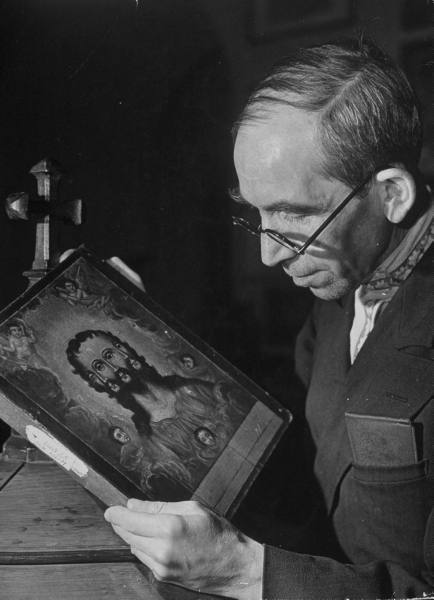Diversity is natural, uniformity is artificial. Whenever you see the uniformity of cultural memes, be it the linguistic map of modern France or the style of Russian icons, you may be sure it is a result of violent homogenisation. Consider this trifacial Trinity from Tobolsk 

Trinities with three faces and four eyes were quite common for the Early Modern Siberia. Ecclesiastical authorities of Tobolsk issued two orders in 1748 and 1770 forbidding the use of these "Hellenic" (=pagan) images. Still they were used in churches and privately till the 20th c 

Imperial authorities disapproved three facial trinity icons. When Catherine II was visiting Kazan in 1764, a local merchant brought her such an icon as a gift. She ordered to arrest him and investigate immediately. Heterodoxy in iconography would arouse suspicions in heresy 

While Imperial authorities and the official church fought with this iconography style, it seems that it was the Soviet state that killed it. Reportedly, the three facial icons were used till the anticlerical campaigns of 1920-1930s, when the old tradition was effectively uprooted 

With the transformation of the USSR to Russia, Russia kinda started re-clericalizing with the Orthodox Church wealth and power growing immensely. Plenty of churches, monasteries and other institutions were opened again. But contrary to the popular belief it was not a revival 

Older and much more natural religious tradition that existed before the 20th c. was killed and it could not be revived. What came in the late 20th c. was an top-down, centrally directed innovation rather than revival of a revolutionary tradition. Which could not be revived 

Complexity and cultural continuity are nearly impossible to recreate once they're interrupted for more than a generation. Once it's gone, it's gone and those advocating for "revival" of an old institution are in fact shilling for yet another modern for profit franchise. End of🧵 

• • •
Missing some Tweet in this thread? You can try to
force a refresh





